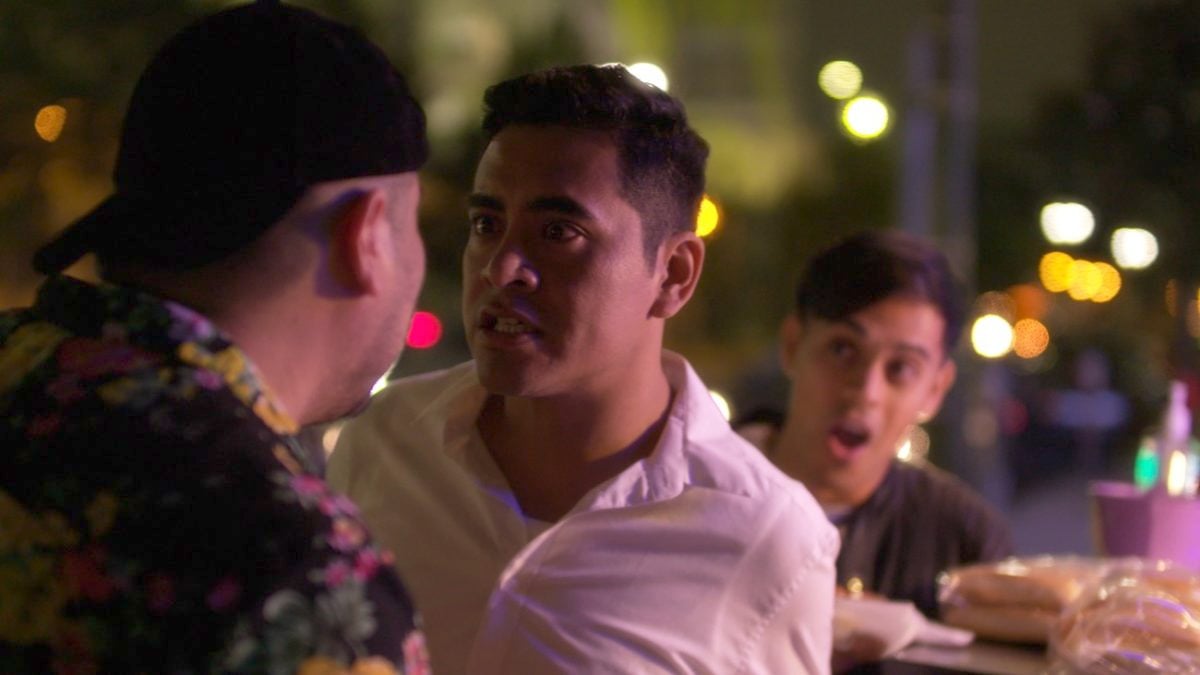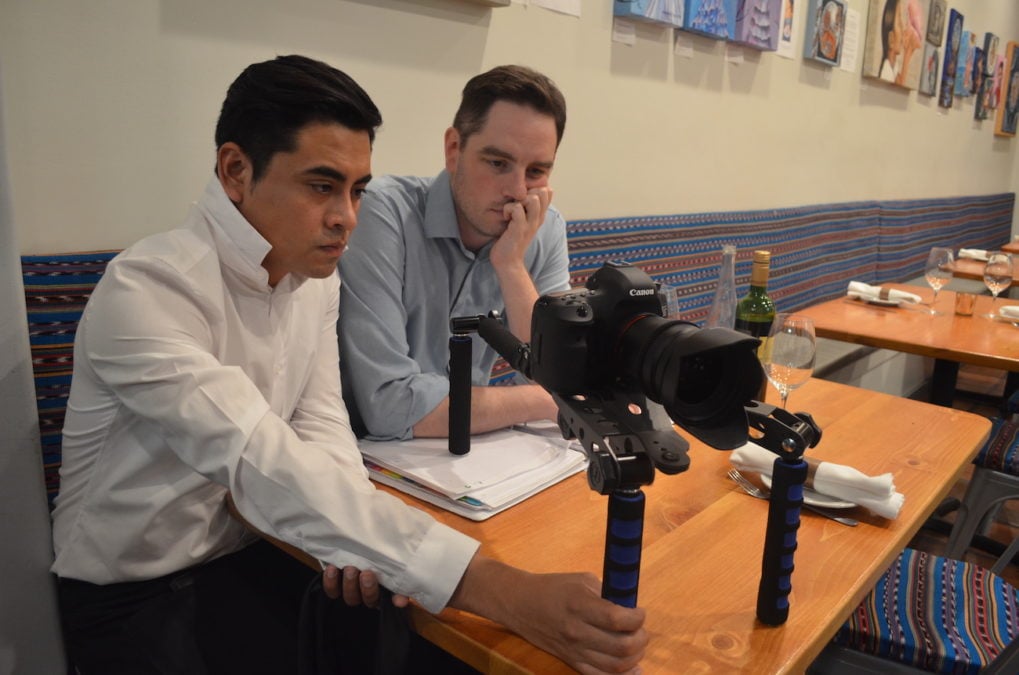Fernando Gutierrez, the lead character in “Undocumented Tales,” works as a waiter and navigates life in Los Angeles as an undocumented gay man pursuing life, liberty, and happiness.
Armando Ibanez, 36, is the writer and director of “Undocumented Tales.” He also stars as Gutierrez.
“Despite all the obstacles and barriers Fernando encounters, he keeps going, and that represents the undocumented queer communities, the spirit of survival,” Ibanez says. “That’s the beauty of it.”
“Undocumented Tales” launched with two episodes, and season two, which debuted in 2017, was six episodes. The web series is posted on “Undocumented Tales” YouTube channel.
Gutierrez is not perfect, which is the point, Ibanez says.
“Fernando is not the typical good immigrant that we always see in mainstream media,” Ibanez says. “This time we get to see someone who’s not perfect and makes mistakes like any other person on Earth.”
Ser Anzoategui talks season 2 ‘Vida,’ Starz’s queer Latinx series
In “Undocumented Tales,” Gutierrez has dealt with hiding his queer identity from his family and lying to society about his legal status. He also tries to maneuver the minefield of dating and relationships.
Ibanez recently completed filming season three of “Undocumented Tales.” He has set up a Go Fund Me page to help pay post-production expenses, including labor costs, editing software, and marketing. Season three is scheduled to premiere in November.
In an interview with Q Voice News, Ibanez, 36, talks about Hollywood’s failed representation of undocumented queer people, how to improve that visibility, and what viewers can expected to see on season three of “Undocumented Tales.”
On Starz’s ‘Vida,’ queer Latinx character from Ser Anzoategui shines
Here are some excerpts.
Hollywood’s failure
“Hollywood barely brings representation of our undocumented queer communities, and I can’t think of any project that has undocumented queer characters right now,” Ibanez says. “They usually bring undocumented issues, but they never talk about the intersection of being undocumented and LGBTQ. We need to see more of that and the complexities of the identity.
“Because of that, I didn’t want to wait, and I started making my own series,” Ibanez says. “Hollywood needs to hire us and respect our points of views if authenticity is what they’re looking for.”

Armando Ibanez, center, is the writer and director of the web series of “Undocumented Tales.” The series follows Fernando Gutierrez, who works as a waiter and navigates life in Los Angeles as an undocumented gay man. Photo: “Undocumented Tales”
Hollywood’s failure part 2
“Hollywood has been following a bible about ‘How to make POC films,’ and that bible is full of stereotypes and misconceptions,” Ibanez says. “Now, thanks to the internet and social media, audiences are speaking up, and we have the power to boycott projects that are not respectful to our people.
“I do think that times are finally changing. Movies like ‘Roma,’ ‘Crazy Rich Asians,’ and ‘Black Panther’ are making studios pay attention about who are the big consumers in the industry,” Ibanez says. “We are speaking up, and studios better listen to us.”
Increasing visibility
“Very simple, if you want to make movies about a particular community, go to them,” Ibanez says. “Hire them. Consult with them. Make them part of the process. Make sure they have a seat at the table, and make sure they’re the ones making the decisions when it comes to representation.”
Queer, undocumented representation
“With ‘Undocumented Tales,’ I want to tell my people that we are important, and that we are beautiful,” Ibanez says. “With my work, I don’t try to show that immigrants contribute to this country. With my work, I just want to show that immigrants are human beings, something mainstream media doesn’t do very often.”

Writer-director Armando Ibanez, left, works behind-the-scenes on an episode of “Undocumented Tales” during season two. Photo: “Undocumented Tales.”
Writing ‘Undocumented Tales’
“Since season one, all of the episodes have been based on some of my personal experiences and the experiences of the community where I live every day,” Ibanez says. “That’s the power of writing. You live and witness stories of struggles and obstacles. You can work around that to tell the stories about your people.
“But the third season has less of my own experiences,” Ibanez says. “The third season is written more based on the comments the audience told me they wanted to see in future episodes.”
Mental health story
“With mental health, we’re going to explore anxiety and depression with one of the characters,” Ibanez says. “We’re also going to talk about talk therapy. That’s something we usually don’t talk about in our communities.
“I will also continue talking about the micro-aggressions customers do to people of color who work in restaurants. My character continues experiencing this aggressions, but I have a feeling this season, there’s a payback,” Ibanez says, with a laugh.
Fernando’s love life
“Also, one thing I am excited to continue talking again in this new season is Fernando’s love life and how someone’s legal status affects relationships,” Ibanez says. “I can’t wait.”
Season 3 changed his life
“I love having the power to create something that I know will live forever on the screen,” Ibanez says. “I feel inspired because these are stories that we haven’t seen on the screen, and that empowers me so much to continue writing.
“When I was a child, I always thought working in films was something for white people or for the rich. I now feel very empowered to do screenwriting for the rest of my life.”
